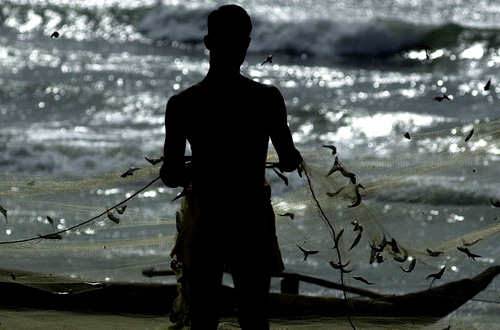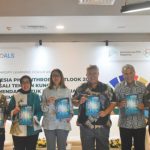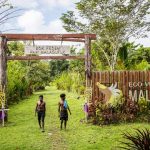Jakarta (Greeners) – Nearly 90 percent out of 634,000 fishing boats in Indonesia is categorized as small scale fisheries as its weight below 5 Gross Ton by 2014.
The small scale fisheries is predicted to cover eight millions workers in the production, processing and distribution industries.
Chair of Indonesian Traditional Fisherman Association (KNTI), Riza Damanik, said that small scale fisheries have at least provided 60 percent of the total national fish production. And, in addition to farm fisheries, they have contributed to 35 kilograms per capita per year of the country’s fish consumption.
Furthermore, they also supply for domestic industries.
“They also sell it other countries such as US, European Union, Japan, Hongkong, China and neighboring countries,” said Riza in a press release to Greeners in Jakarta, on Wednesday (09/12).
Riza said small scale fisheries has become a crucial part to protect fish resources sustainability through their local knowledge.
The community based conservation has been proven to be socially, ecologically, and economically friendly, for example Awig-awig in West Nusa Tenggara, sasi in Maluku, Bapongka in Central Sulawesi, Manee’ in South Sulawesi, and Panglima Laot in Aceh.
However, small scale fisheries’ positive potentials are currently under threats by projects claimed to be climate change mitigation and adaptation programs.
For instance, to reduce fossil fuel dependence then biofuel is being promoted as alternative energy sources especially from palm oil.
However, in current development, lots of coastal and small islands of Indonesia have been converted to fulfill biofuel global market demand.
He cited at least 16,000 mangrove forest areas have been converted into oil palm plantation in Langkat district.
As a result, lives of 17,000 fishermen and local people have been severely affected.
“KNTI among with other NGOs and loval government have been rehabilitating mangrove fores to restore its ecological function which serve as fish breeding place and prevent sedimentation and beach abrasion,” he said.
Furthermore, he said that sea level rise related to impacts of climate change had instead being used to expand coastal cities development through reclamation.
The Jakarta Bay Reclamation Project alone needs more than 3.3 billion cubic meter of sands from other regions to built 17 new islands.
However, in return, the reclamation would threatened the livelihoods of 16,000 fishermen, damaged ecosystem, and pollution.
Other on-going reclamation projects are Benoa Bay in Bali and Makassar coastal area of South Sulawesi.
The counterproductive situation is also happening in the world in the fights of illegal fishing and sea conservation.
On one side, global instrument to eradicate illegal fishing keep on rising but its trading especially from Indonesian waters and other areas are still going on.
“It is similar with funding mobilization from World Bank, ADB, GEF, USAID and other agencies for sea conservation are flowing. But, global sanctions against corporates destroying the environment are not strict. Meanwhile, multinational corporations such as Newmont and Freeport are getting bold to threat even push legal action against Indonesia’s sovereignty to the international court,” he said.
Reports by Danny Kosasi



















































